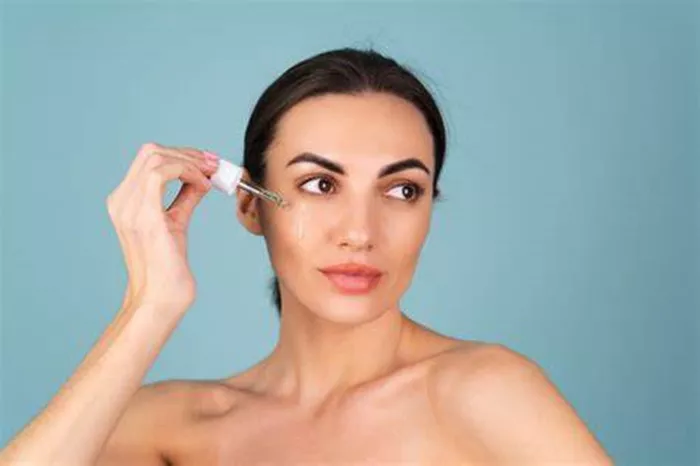Retinol, a derivative of vitamin A, has become a cornerstone in modern skincare routines, revered for its multifaceted benefits. It is classified as a retinoid, a broader category of compounds that includes both over-the-counter and prescription options. While prescription retinoids like tretinoin are more potent, retinol remains a popular choice for many due to its accessibility and effectiveness. This article delves into the various uses of retinol in skincare, its mechanisms of action, benefits, potential side effects, and tips for incorporation into a skincare regimen.
Retinol and Its Mechanism of Action
Retinol works at a cellular level, penetrating the skin and converting into retinoic acid, the active form that exerts its effects. This transformation occurs through enzymes present in the skin, allowing retinol to stimulate cellular turnover, enhance collagen production, and improve overall skin texture.
Cellular Turnover and Skin Renewal
As we age, the natural process of skin cell turnover slows down, leading to a buildup of dead skin cells, dullness, and uneven texture. Retinol accelerates this process, promoting the shedding of old cells and the emergence of fresh, new skin. This not only revitalizes the complexion but also helps to minimize the appearance of fine lines and wrinkles.
Collagen Production
Collagen is a crucial protein that provides structure and elasticity to the skin. Retinol stimulates fibroblasts, the cells responsible for collagen synthesis, leading to increased collagen levels. This boost in collagen helps to plump the skin, reducing the visibility of wrinkles and enhancing firmness.
Free Radical Neutralization
Retinol also plays a role in combating oxidative stress caused by free radicals. These unstable molecules can damage skin cells and accelerate aging. By neutralizing free radicals, retinol helps to protect the skin from environmental damage, contributing to a more youthful appearance.
Key Uses of Retinol in Skincare
Retinol is primarily used for the following skin concerns:
1. Anti-Aging
Retinol is perhaps best known for its anti-aging properties. It effectively reduces the appearance of fine lines and wrinkles by promoting collagen production and enhancing skin elasticity. Regular use can lead to a smoother, more youthful complexion.
2. Acne Treatment
Retinol is a powerful ally in the fight against acne. It helps to unclog pores by preventing the buildup of dead skin cells and excess oil, which are common contributors to acne formation. Additionally, retinol can reduce inflammation associated with acne, leading to fewer breakouts and improved skin clarity.
3. Hyperpigmentation and Uneven Skin Tone
Retinol is effective in addressing hyperpigmentation issues such as sun spots, age spots, and melasma. By promoting cell turnover, it helps to fade dark spots and even out skin tone, resulting in a brighter, more uniform complexion.
4. Enlarged Pores
Enlarged pores are often a result of excess oil and debris accumulation. Retinol helps to minimize the appearance of pores by keeping them clear and promoting a smoother skin texture. This effect can lead to a more refined and polished look.
5. Skin Texture and Tone Improvement
Beyond addressing specific concerns, retinol enhances overall skin texture and tone. Its exfoliating properties help to smooth rough patches and promote a radiant complexion. Users often report a noticeable improvement in skin softness and brightness after consistent use.
See Also: How To Take Care Of Your Skin After Micro Needling?
Incorporating Retinol into Your Skincare Routine
Starting Slowly
For those new to retinol, it is crucial to start slowly to allow the skin to acclimate. Begin with a low concentration, such as 0.25% to 0.5%, and use it two to three times a week. Gradually increase the frequency as the skin builds tolerance.
Application Tips
Nighttime Use: Retinol can increase sun sensitivity, so it is best applied at night. This also allows the product to work effectively without interference from sunlight.
Clean Skin: Apply retinol to clean, dry skin. Wait at least 20-30 minutes after cleansing to minimize irritation.
Pea-Sized Amount: A small amount, about the size of a pea, is sufficient for the entire face. Avoid applying it to sensitive areas such as the eyes and mouth initially.
Moisturizer Layer: Consider applying a moisturizer after retinol to help mitigate potential dryness and irritation.
Monitoring Skin Response
It is normal to experience some initial irritation, such as dryness, redness, or peeling. These symptoms typically subside as the skin adjusts. If irritation persists or worsens, reduce the frequency of application or consult a dermatologist for guidance.
Potential Side Effects of Retinol
While retinol is celebrated for its benefits, it is not without potential side effects. Common issues include:
Irritation: Redness, peeling, and dryness are common, especially during the initial weeks of use.
Sun Sensitivity: Increased sensitivity to UV rays necessitates diligent sun protection. Users should apply a broad-spectrum sunscreen with an SPF of at least 30 daily.
Not Suitable for Everyone: Individuals with certain skin conditions, such as eczema or rosacea, may experience exacerbated symptoms. Pregnant individuals are also advised to avoid retinol due to potential risks.
Conclusion
Retinol stands out as a versatile and effective ingredient in skincare, capable of addressing a wide range of concerns from aging to acne. Its ability to promote cellular turnover, stimulate collagen production, and improve overall skin texture makes it a valuable addition to any skincare routine. With proper usage and attention to skin response, retinol can help individuals achieve healthier, more radiant skin. As always, consulting with a dermatologist can provide personalized recommendations and ensure the best results from retinol use.
[inline_related_posts title=”You Might Be Interested In” title_align=”left” style=”list” number=”6″ align=”none” ids=”12208,12200,12098″ by=”categories” orderby=”rand” order=”DESC” hide_thumb=”no” thumb_right=”no” views=”no” date=”yes” grid_columns=”2″ post_type=”” tax=””]



































